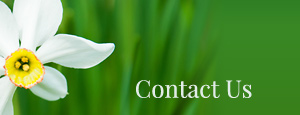History of Herbal Medicine
Plants had been used for medicinal purposes long before recorded history. Ancient Chinese and Egyptian papyrus writings describe medicinal uses for plants as early as 3,000 BC. Indigenous cultures (such as African and Native American) used herbs in their healing rituals, while others developed traditional medical systems (such as Ayurveda and Traditional Chinese Medicine) in which herbal therapies were used. Researchers found that people in different parts of the world tended to use the same or similar plants for the same purposes.
In the early 19th century, when chemical analysis first became available, scientists began to extract and modify the active ingredients from plants. Later, chemists began making their own version of plant compounds and, over time, the use of herbal medicines declined in favor of drugs. Almost one fourth of pharmaceutical drugs are derived from botanicals.
Recently, the World Health Organization estimated that 80% of people worldwide rely on herbal medicines for some part of their primary health care. In Germany, about 600 - 700 plant based medicines are available and are prescribed by some 70% of German physicians. In the past 20 years in the United States, public dissatisfaction with the cost of prescription medications, combined with an interest in returning to natural or organic remedies, has led to an increase in herbal medicine use.
How Do Herbs Work?
In many cases, scientists aren' t sure what specific ingredient in a particular herb works to treat a condition or illness. Whole herbs contain many ingredients, and they may work together to produce a beneficial effect. Many factors determine how effective an herb will be. For example, the type of environment (climate, bugs, soil quality) in which a plant grew will affect it, as will how and when it was harvested and processed.
How Are Herbs Used?
The use of herbal supplements has increased dramatically over the past 30 years. Often, herbs may be used together because the combination is more effective and may have fewer side effects. Health care providers must take many factors into account when recommending herbs, including the species and variety of the plant, the plant's habitat, and how it was stored and processed.
What is Herbal Medicine Good For?
Herbal medicine is used to treat many conditions, such as asthma, eczema, premenstrual syndrome, rheumatoid arthritis, migraine, menopausal symptoms, chronic fatigue, irritable bowel syndrome, and cancer, among others. Herbal supplements are best taken under the guidance of a trained health care provider.
 Have a question about our services?
Have a question about our services?
Please Call Us or use Mail Form to contact us.
Overview
Over thirty million people in Europe alone already benefit from homeopathic treatment. In India, over 100 million benefit. Homeopathy could help you too. Homeopathy is a gentle, holistic system of healing, suitable for everyone, young and old. Homeopathy focuses on you as an individual, concentrating on treating your specific physical and emotional symptoms, to give long lasting benefits. Homeopathic treatment works with your body's own healing powers to bring health and well being. Patients are treated as individuals, not as a collection of disease labels. Homeopathy treats all your symptoms – mental, emotional and physical. Homeopathic remedies are gentle, subtle and powerful.
Definition & Origins
Homeopathy or homoeopathy is a system of alternative medicine. The term derives from the Greek hómoios (similar) and páthos (suffering). The underlying concept of homeopathy is "like cures like" and is based on "the principle of similars", which asserts that substances known to cause particular symptoms can also, in low and specially prepared doses, help to cure diseases that cause similar symptoms. Some principles of homeopathy have been utilized in various forms in various medical systems for thousands of years in many diverse cultures, but they were first methodically set out by a German physician, Samuel Hahnemann (1755–1843), who observed that a medicine sometimes evoked symptoms similar to those of the illness for which it was prescribed. He subsequently found a way of "potentizing" these substances which reduced the side effects whilst increasing their healing powers. He not only practiced this dramatically effective new medical and alternative approach, he also in a very scholarly way wrote about it.
In homeopathic theory, written about in a book called the Organon by Samuel Hahnemann, every person and living creature is said to have a "vital force", which promotes healing and maintains good health (the term "vital force" is akin to qi in traditional Chinese medicine). In Hahnemann's and homeopaths' approach, the symptoms of a disease reflect efforts of the vital force to counter infection, or to resist damage from environmental toxins or from various stresses.
Homeopathic treatment attempts to strengthen this "vital force" with the help of remedies, which are extremely small doses of drugs diluted and vigorously shaken ("succussed") in water or ethanol and dispensed in pills or liquid form. They are chosen for their ability (in large doses) to provoke the very symptoms that the remedy is intended to heal (and thereby for their presumed ability to stimulate natural healing). Homeopaths believe that this "vital force" is akin to what physiologists would call the body's "defense systems".
Homeopathy is practiced by some medical doctors, as well as by other health professionals in virtually every country in the world. In addition to those homeopathic remedies prescribed in the professions practicing homeopathy, remedies are used by consumers all over the world for self-treatment of common self-limiting ailments and injuries.
 Have a question about our services?
Have a question about our services?
Please Call Us at 310-326-8625 or use Mail Form to contact us.
 Service Category
Service Category
- Naturopathic Medicine
- Integrative Medicine
- Craniosacral Treatment / Lymph Drainage / Visceral Manipulation
- Vitamin, Mineral Drip Therapy
- Chelation
- Detoxification Therapies
- Far Infrared Sauna
- Herbal Medicine
- Homeopathic Medicine
- Bio-identical Hormone / Replacement Therapy
- Dietary Counseling
- Heart Math






